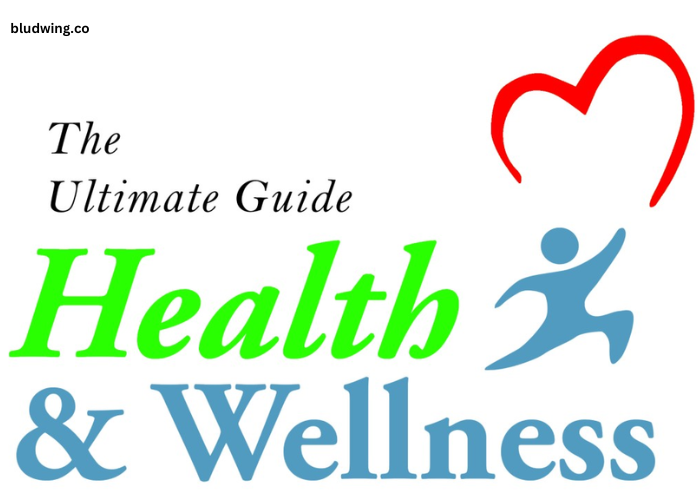Health is the foundation of a fulfilling life. It impacts everything from your energy levels and mood to your ability to perform daily tasks and enjoy leisure activities. In today’s fast-paced world, it can be easy to overlook the importance of maintaining good health, but it’s essential for living a long, active, and happy life. Health is not just the absence of illness; it’s a state of complete physical, mental, and social well-being.
This ultimate guide to health will take you through the essential aspects of maintaining and improving your health in every area of life. Whether you want to boost your physical fitness, improve your mental well-being, or make healthier lifestyle choices, this guide will provide you with practical tips and strategies for success.
Key Points:
- Health is a holistic concept, encompassing physical, mental, and emotional well-being.
- Small, consistent habits can have a big impact on your overall health.
- A balanced lifestyle is key to achieving lasting health and happiness.
How Can You Improve Your Physical Health?
Physical health is one of the most important pillars of overall well-being. It includes everything from eating nutritious foods and staying active to getting enough rest and managing stress. Here’s how you can improve your physical health:
1. Eat a Balanced Diet
A balanced diet is essential for maintaining physical health. It provides the nutrients your body needs to function properly, boosts your immune system, and helps manage weight. Aim to incorporate the following into your diet:
- Fruits and Vegetables: Rich in vitamins, minerals, and fiber, fruits and vegetables support your body’s immune system and overall health.
- Protein: Sources like lean meat, fish, eggs, legumes, and plant-based proteins are important for muscle repair and immune function.
- Whole Grains: Whole grains like brown rice, quinoa, and oats are a good source of fiber and help regulate blood sugar levels.
- Healthy Fats: Avocados, nuts, seeds, and olive oil provide healthy fats that support heart health and brain function.
Remember to stay hydrated by drinking plenty of water throughout the day. Avoid sugary drinks and excessive caffeine, as they can dehydrate the body and cause energy crashes.
2. Exercise Regularly
Regular physical activity is crucial for maintaining a healthy body. Exercise helps with weight management, boosts cardiovascular health, and strengthens muscles and bones. It also releases endorphins, which improve mood and reduce stress. Aim for at least 30 minutes of moderate-intensity exercise most days of the week.
Some effective forms of exercise include:
- Cardio: Activities like walking, running, swimming, and cycling improve heart health and stamina.
- Strength Training: Lifting weights or doing bodyweight exercises like squats and push-ups builds muscle mass and strengthens bones.
- Flexibility and Balance: Yoga, Pilates, and stretching exercises help improve flexibility, balance, and reduce the risk of injury.
3. Get Enough Sleep
Sleep is crucial for physical health and overall well-being. During sleep, your body repairs tissues, replenishes energy stores, and strengthens the immune system. Adults should aim for 7 to 9 hours of sleep per night. To improve your sleep:
- Maintain a consistent sleep schedule.
- Create a calming bedtime routine, such as reading or meditating before sleep.
- Keep your sleep environment dark, quiet, and cool.
- Avoid screens at least an hour before bedtime to reduce blue light exposure.
How Can You Improve Your Mental Health?
Mental health is just as important as physical health. It affects how we think, feel, and behave, and it impacts our ability to handle stress, relate to others, and make decisions. Here’s how you can improve your mental health:
1. Practice Mindfulness and Meditation
Mindfulness involves being fully present in the moment, without judgment. Practicing mindfulness can reduce stress, increase focus, and improve overall mental well-being. Meditation is a great way to cultivate mindfulness and find calm in a busy world. Even just 5-10 minutes of daily meditation can help reduce anxiety and improve mood.
2. Manage Stress Effectively
Stress is a normal part of life, but chronic stress can negatively impact your health. Learning to manage stress effectively is key to maintaining mental well-being. Try the following techniques:
- Deep Breathing: Practice deep breathing exercises to relax your mind and body.
- Exercise: Physical activity helps reduce stress hormones and boosts mood-enhancing endorphins.
- Time Management: Prioritize tasks and break large projects into smaller, manageable steps to avoid feeling overwhelmed.
- Relaxation Techniques: Techniques such as progressive muscle relaxation, listening to calming music, or taking a warm bath can help you unwind.
3. Connect with Others
Building strong social connections is vital for mental health. Having a support network of friends, family, or colleagues can provide emotional support, reduce feelings of loneliness, and improve overall happiness. Make time for regular social interactions, whether in person or virtually.
Additionally, don’t be afraid to seek professional help if needed. Speaking with a therapist or counselor can help you work through any mental health challenges you may be facing.
How Can You Improve Your Emotional Health?
Emotional health involves understanding, managing, and expressing your emotions in a healthy way. It’s about maintaining a positive outlook and building resilience in the face of life’s challenges. Here’s how to improve your emotional health:
1. Develop Self-Awareness
Self-awareness is the ability to recognize and understand your emotions, triggers, and reactions. By becoming more aware of your emotional responses, you can manage them better and prevent negative emotions from affecting your well-being. Journaling or talking to someone you trust can help you gain insight into your emotions.
2. Practice Gratitude
Gratitude is a powerful tool for improving emotional health. Regularly acknowledging the things you’re grateful for can help shift your focus from negativity to positivity. Try keeping a gratitude journal where you write down three things you’re thankful for each day. This practice has been shown to improve mood, reduce stress, and increase overall life satisfaction.
3. Build Resilience
Resilience is the ability to bounce back from setbacks and handle adversity. Building resilience involves developing coping strategies, staying optimistic, and finding meaning in difficult situations. Practice self-compassion by treating yourself kindly during tough times, and don’t hesitate to seek support when needed.
Conclusion: A Holistic Approach to Health
Maintaining good health is a lifelong journey that requires attention to physical, mental, and emotional well-being. By adopting a holistic approach that includes a balanced diet, regular exercise, quality sleep, stress management, and emotional resilience, you can achieve a healthy, fulfilling life. The ultimate guide to health is about making small, consistent changes that will have a lasting impact on your overall well-being.
Remember, health is not a destination but a continuous process of growth and improvement. Start today by taking small steps toward better health, and you’ll be on your way to living a longer, more vibrant life.
FAQ’s
1. What are the basic steps to improve health?
Improving health involves eating a balanced diet, exercising regularly, getting enough sleep, managing stress, and fostering strong social connections.
2. How can I improve my mental health?
You can improve mental health by practicing mindfulness, managing stress, seeking social support, and, if necessary, consulting a therapist.
3. How much sleep do I need for optimal health?
Most adults need between 7 to 9 hours of sleep per night for optimal health. Quality sleep is important for physical and mental recovery.
4. What foods should I eat to improve physical health?
Focus on eating fruits, vegetables, lean proteins, whole grains, and healthy fats. These foods provide essential nutrients for your body’s well-being.
5. How can I manage stress effectively?
Effective stress management involves practicing deep breathing, regular exercise, time management, and relaxation techniques like meditation.




